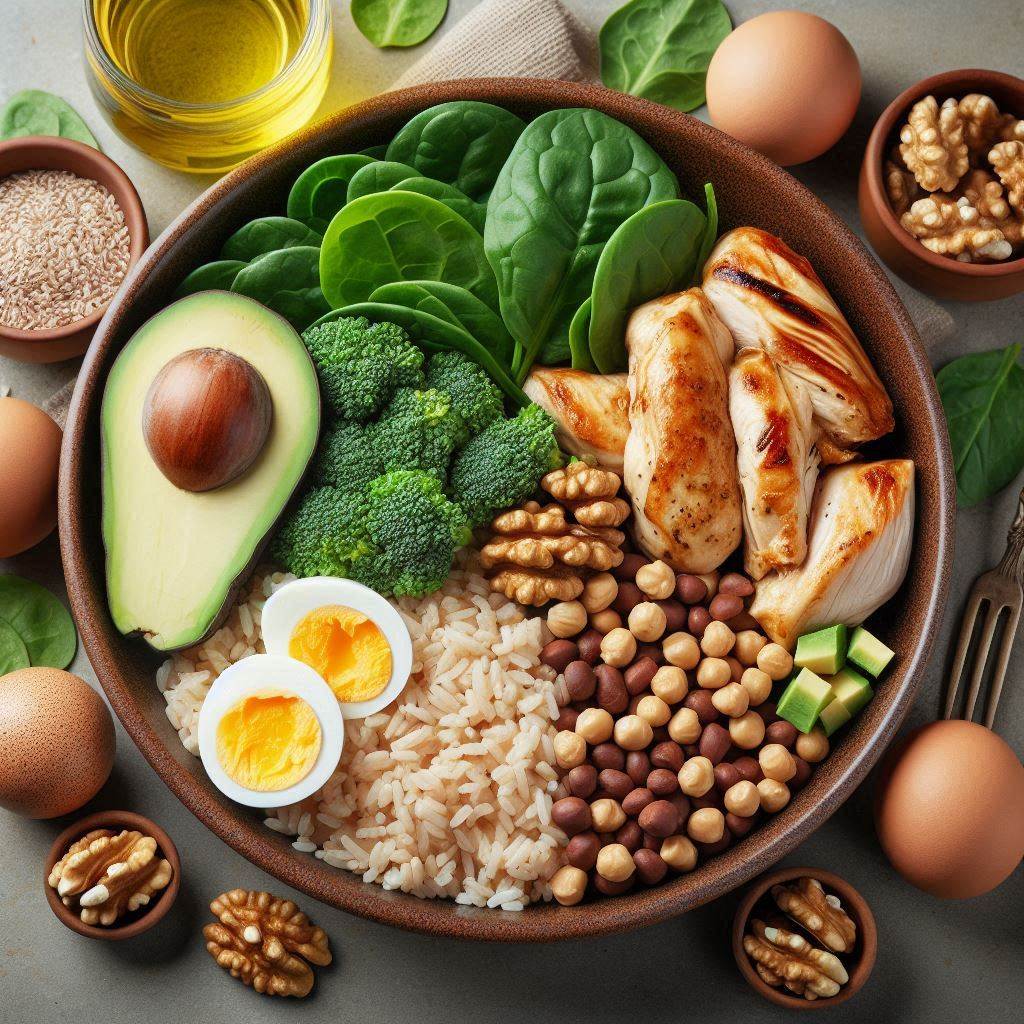“Simplify Your Diet: The Power of Single Ingredient Foods”

In today’s world of processed snacks and fast food, it’s easy to lose sight of what real, nutritious food looks like. We’re bombarded by flashy packaging and lengthy ingredient lists, many filled with preservatives and unpronounceable chemicals. But amidst the chaos of modern diets, there’s a powerful and straightforward solution: single ingredient foods. These foods can help simplify your diet, improve your health, and restore your relationship with what you eat.
What Are Single Ingredient Foods?
As the name suggests, single ingredient foods are those that contain just one ingredient—nothing added, nothing taken away. Think of fresh fruits, vegetables, whole grains, nuts, seeds, and unprocessed meats. For example, a sweet potato is a single ingredient food, whereas a bag of chips made from sweet potatoes, oil, and seasoning is not.
This back-to-basics approach to eating can transform how you nourish your body, as these foods are often packed with essential nutrients, fiber, vitamins, and minerals. Plus, they naturally avoid many harmful additives like refined sugars, unhealthy fats, and excess sodium.
Why Choose Single Ingredient Foods?
1. Improved Nutritional Quality
Single ingredient foods are typically whole and unprocessed, meaning they retain their natural nutritional profile. For example, an apple in its raw form contains vitamins, fiber, and water content that processed versions (like applesauce or apple-flavored snacks) often lose. When you stick to foods in their purest form, you’re ensuring you get the maximum nutritional benefit.
2. Less Confusion and Clear Choices
Food marketing can be confusing. Claims like “all-natural,” “low-fat,” or “gluten-free” often mask unhealthy or highly processed options. With single ingredient foods, you eliminate this confusion. You know exactly what you’re getting. There’s no need to scrutinize labels or decipher misleading health claims.
3. Helps Control Portions and Hunger
When you eat foods in their whole form, they tend to be more filling. They are naturally rich in fiber, water, and essential nutrients that help control hunger and stabilize blood sugar levels. For instance, eating a bowl of oats provides long-lasting energy, while sugary cereal might cause a quick spike and crash in blood sugar, leaving you hungry sooner.
4. Supports Weight Management
Single ingredient foods help reduce overeating because they are generally more satisfying and nutrient-dense. Additionally, these foods are less likely to lead to mindless snacking compared to their processed counterparts, which are designed to keep you reaching for more. If weight loss or management is your goal, single ingredient foods can be an invaluable tool.
5. Reduced Exposure to Harmful Additives
Many processed foods contain preservatives, artificial colors, and chemicals that can have negative long-term effects on health. By sticking to single ingredient options, you minimize your exposure to these potentially harmful substances, reducing the risk of chronic diseases like heart disease, diabetes, and obesity.
How to Incorporate More Single Ingredient Foods Into Your Diet
- Start with the Basics: Begin by incorporating more fruits and vegetables into your meals. Try adding a handful of spinach to your morning smoothie or snacking on raw nuts instead of processed chips.
- Shop the Perimeter: In most grocery stores, the perimeter is where you’ll find whole foods like fresh produce, meats, and dairy. Stay clear of the middle aisles, where most of the processed and packaged items are located.
- Cook at Home: Cooking your meals from scratch ensures you have control over what goes into your food. A simple stir-fry with fresh veggies, lean meats, and olive oil is a perfect example of a single ingredient meal that’s easy to make.
- Avoid Pre-Packaged Foods: Pre-packaged and convenience foods are often filled with added sugars, salt, and unhealthy fats. Instead, opt for whole grains like quinoa or brown rice, fresh fruits, and vegetables.
- Focus on Quality Over Quantity: You don’t need to overhaul your entire diet overnight. Begin by focusing on adding more whole foods and slowly phasing out heavily processed items. Even small changes can have a big impact over time.
Single Ingredient Foods for Men 40 and Over
Here’s a list of nutrient-dense single ingredient foods particularly beneficial for men 40 and older. These foods can support heart health, metabolism, muscle maintenance, and overall vitality:
Protein Sources
- Salmon – Rich in omega-3 fatty acids, supports heart and brain health.
- Chicken breast – Lean protein for muscle maintenance.
- Eggs – High in protein and beneficial for testosterone levels.
- Grass-fed beef – Packed with protein, iron, and essential nutrients.
- Lentils – Plant-based protein rich in fiber, supports heart health.
- Turkey – Lean protein, low in fat, great for muscle support.
Healthy Fats
- Avocado – Packed with heart-healthy monounsaturated fats.
- Olive oil – High in antioxidants and promotes heart health.
- Walnuts – Contain omega-3 fatty acids, support brain health.
- Almonds – Rich in vitamin E, good for skin and heart health.
- Chia seeds – Packed with omega-3s, fiber, and protein.
Vegetables
- Spinach – Rich in iron, magnesium, and supports muscle function.
- Kale – High in vitamins K and C, great for heart health.
- Broccoli – Contains antioxidants, fiber, and promotes prostate health.
- Brussels sprouts – High in fiber, supports digestive health.
- Sweet potatoes – Complex carbohydrates with a rich supply of vitamins A and C.
- Beets – High in nitrates, helps improve blood flow and heart health.
Fruits
- Blueberries – Packed with antioxidants, promote brain health.
- Apples – High in fiber, supports heart and digestive health.
- Oranges – Rich in vitamin C, good for immune support.
- Bananas – High in potassium, helps with muscle recovery and heart health.
- Grapefruit – Low in calories, supports weight management and immune health.
Whole Grains & Carbohydrates
- Quinoa – Complete protein with essential amino acids.
- Oats – Rich in fiber, helps with heart health and stable blood sugar.
- Brown rice – High in fiber, supports digestion and sustained energy.
- Barley – Contains beta-glucans, supports cholesterol management.
- Buckwheat – Gluten-free grain, supports heart and digestive health.
Legumes
- Black beans – High in protein, fiber, and good for heart health.
- Chickpeas – Rich in fiber and protein, supports gut and heart health.
- Kidney beans – Protein-rich, great for blood sugar regulation.
Dairy & Alternatives
- Greek yogurt – High in protein and probiotics, supports gut health.
- Cottage cheese – Great source of casein protein for muscle recovery.
- Almond milk (unsweetened) – Dairy alternative, rich in vitamin E.
- Plain kefir – Fermented, rich in probiotics and calcium.
Spices & Herbs
- Turmeric – Anti-inflammatory, supports joint health.
- Garlic – Rich in antioxidants, supports heart health and immune function.
- Ginger – Helps with digestion, anti-inflammatory properties.
These single ingredient foods are designed to enhance overall health, boost energy, and protect against age-related diseases like heart disease and cognitive decline.


